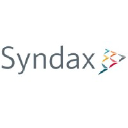Companies
Discover all trending biotech companies
Discover all trending biotech companies

Company Research Platform
Annual Revenue
$ 43,700,000
Global Employees
270
This segment focuses on developing therapies for blood cancers, including acute myeloid leukemia (AML) with specific genetic mutations such as MLL-rearrangements (MLLr) and nucleophosmin 1 (NPM1c). Syndax's lead product, Revuforj® (revumenib), targets the Menin-MLL interaction, a key driver in these cancers. Research and development efforts involve clinical trials to assess the efficacy and safety of revumenib in relapsed/refractory AML patients. The goal is to provide targeted treatment options that improve survival rates and quality of life for patients with these aggressive hematologic malignancies. Future opportunities include expanding the use of revumenib to earlier lines of therapy and exploring combinations with other anti-cancer agents. Regulatory approval and ongoing clinical validation are critical aspects of this segment.
This segment is dedicated to developing treatments for chronic graft-versus-host disease (cGVHD), a complication that can occur after allogeneic hematopoietic stem cell transplantation. Syndax's product, Niktimvo™ (axatilimab), a monoclonal antibody that blocks the CSF-1 receptor, is designed to address the underlying immune dysregulation in cGVHD. Research and development activities include clinical trials to evaluate the efficacy and safety of axatilimab in patients with cGVHD who have failed other treatments. The aim is to provide a targeted therapy that reduces the severity of cGVHD symptoms and improves long-term outcomes for transplant recipients. Future opportunities involve exploring axatilimab in combination with other immunosuppressive agents and expanding its use to other immune-mediated diseases. Regulatory approval and post-market surveillance are essential components of this segment.
This segment focuses on developing therapies for solid tumors, including lung cancer and melanoma. Syndax is developing Entinostat, an oral small molecule that inhibits histone deacetylase (HDAC). Research and development efforts involve clinical trials to assess the efficacy and safety of entinostat in combination with other anti-cancer agents, such as immune checkpoint inhibitors. The goal is to provide treatment options that improve survival rates and quality of life for patients with advanced solid tumors. Future opportunities include expanding the use of entinostat to other cancer types and exploring its potential in combination with novel therapies. Regulatory approval and ongoing clinical validation are critical aspects of this segment.